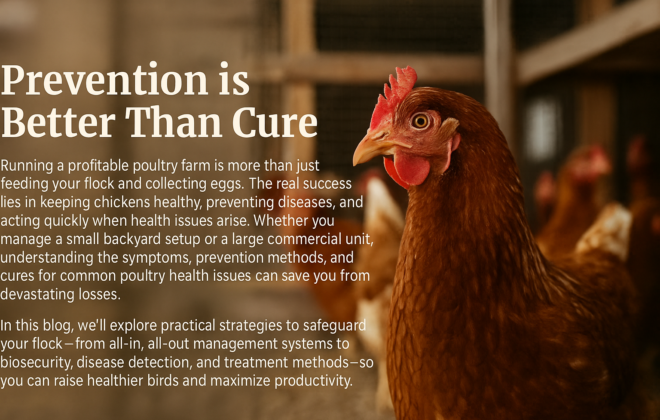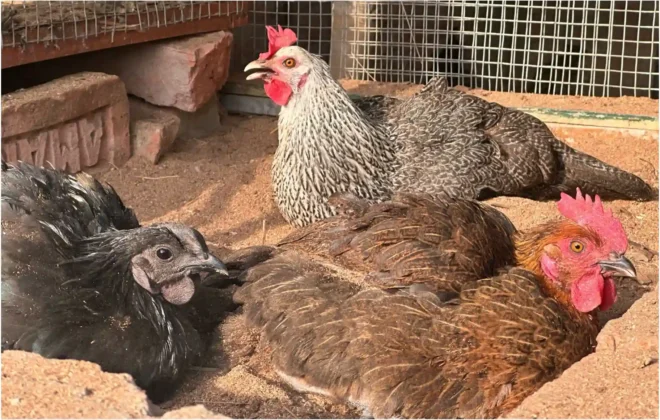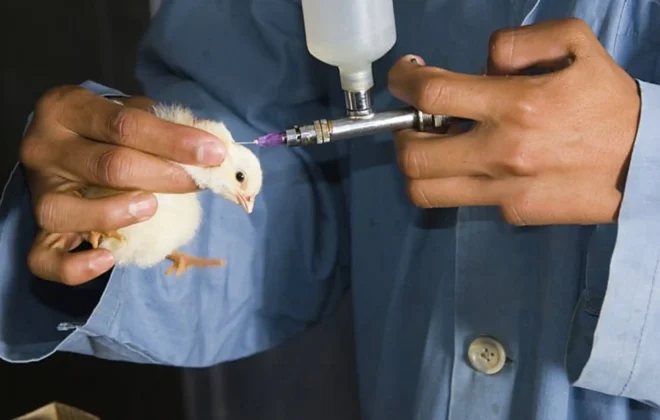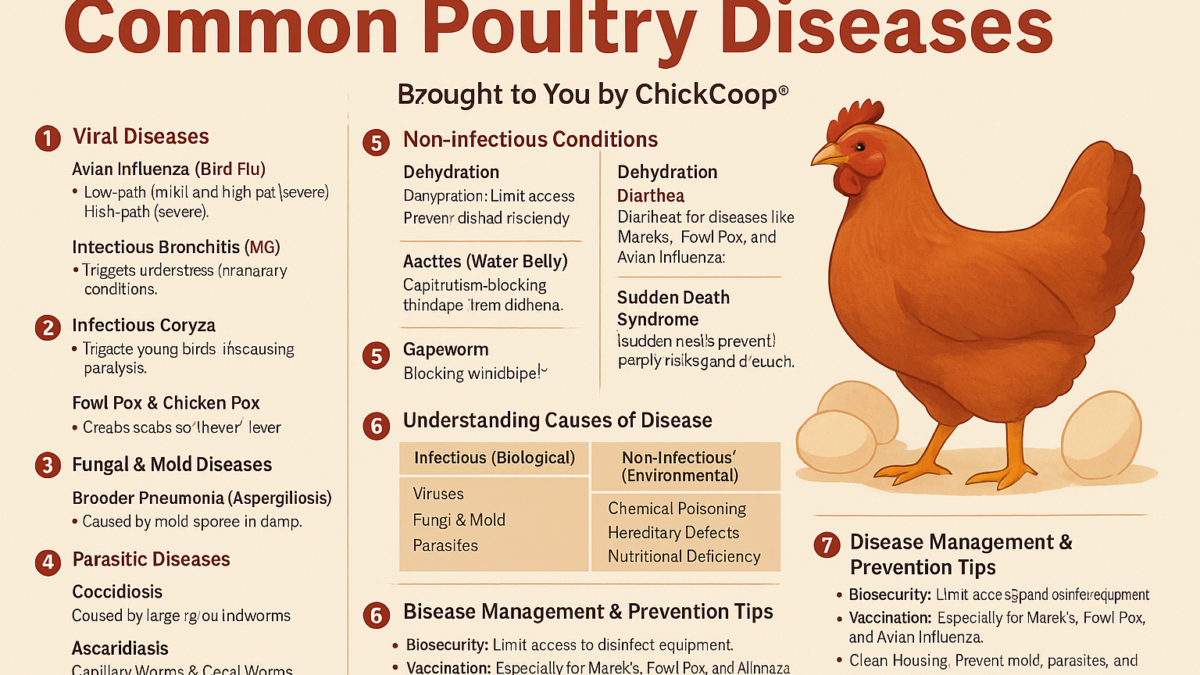
Types of Chicken’s Disease & How to Prevent Them?
At ChickCoop®, we believe that healthy chickens lay the best eggs and grow into the strongest birds. Whether you’re running a commercial poultry farm or raising a backyard flock, understanding the types of diseases that affect chickens is key to prevention, early detection, and effective treatment.
What makes chicken diseases so complex is their variety — from viral to bacterial, fungal to parasitic, and even non-infectious diseases caused by nutrition or environment. Some diseases are chronic and long-lasting, while others strike acutely, spreading like wildfire and wiping out entire flocks if not addressed quickly.
Let’s explore the most common and severe poultry diseases affecting native and commercial breeds around the globe.
1. Viral Diseases
Avian Influenza (Bird Flu)
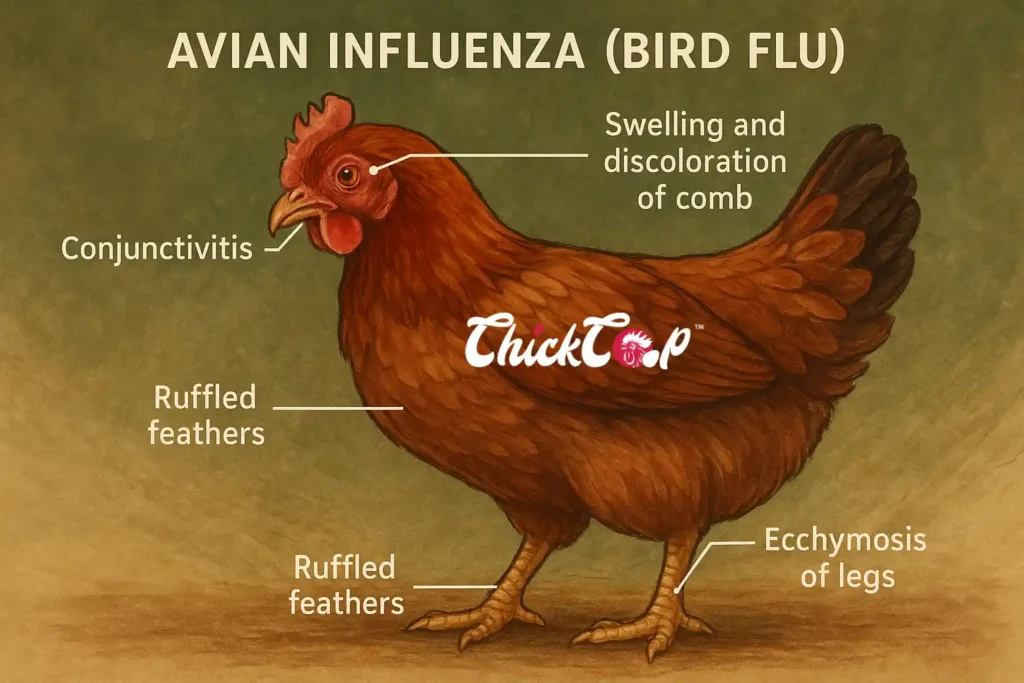
This notorious virus comes in two forms — low-path (mild) and high-path (severe). The H5N1 strain is particularly deadly, with the ability to kill all infected chicks. It spreads rapidly via droppings and contaminated equipment, especially in crowded environments.
Prevention Tip: Vaccination and sanitation are key. Avoid overcrowding and always monitor for new outbreaks.
Infectious Bronchitis
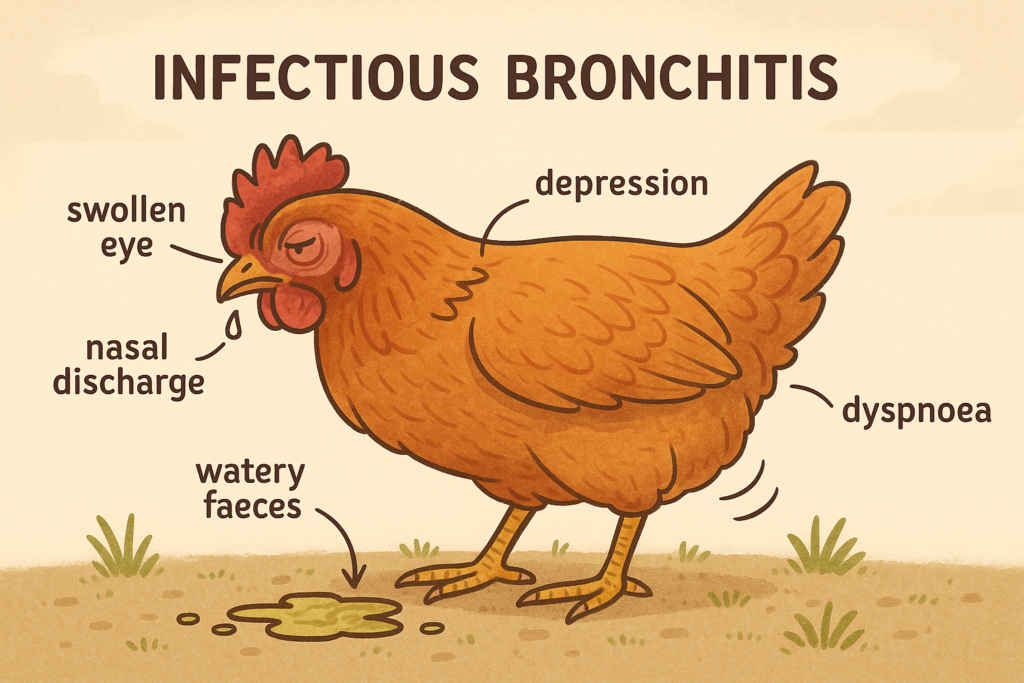
A highly contagious cold-like illness that causes coughing, sneezing, and swollen eyes. Though rarely fatal, it spreads quickly — even over 1,000 yards through the air.
Infectious Laryngotracheitis
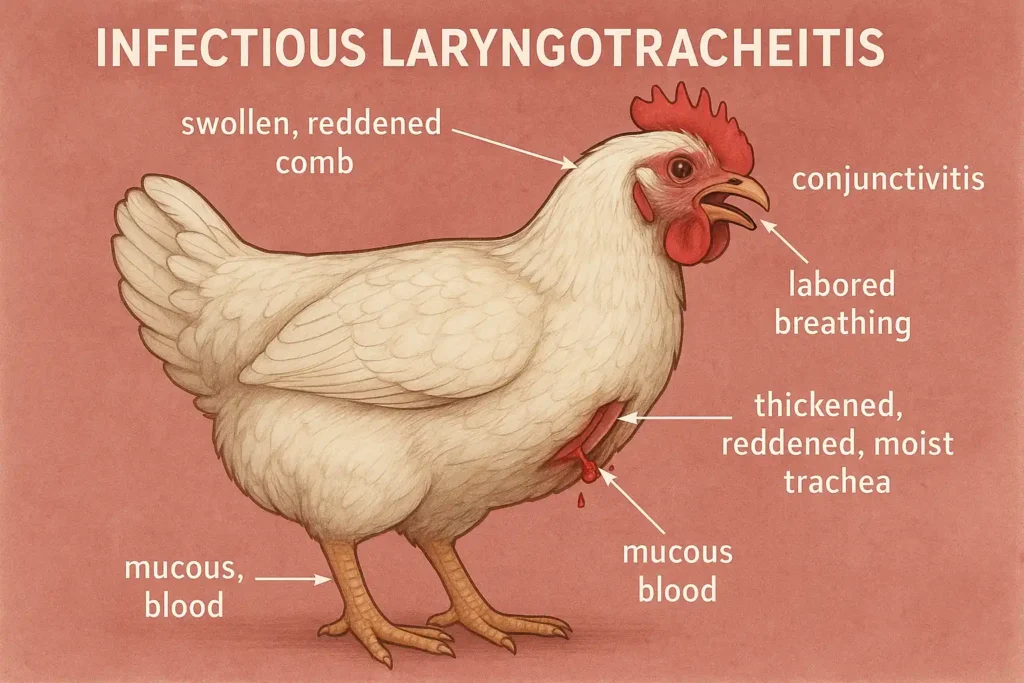
More severe than bronchitis, this respiratory disease causes labored breathing and high mortality. Survivors often become long-term carriers.
Marek’s Disease
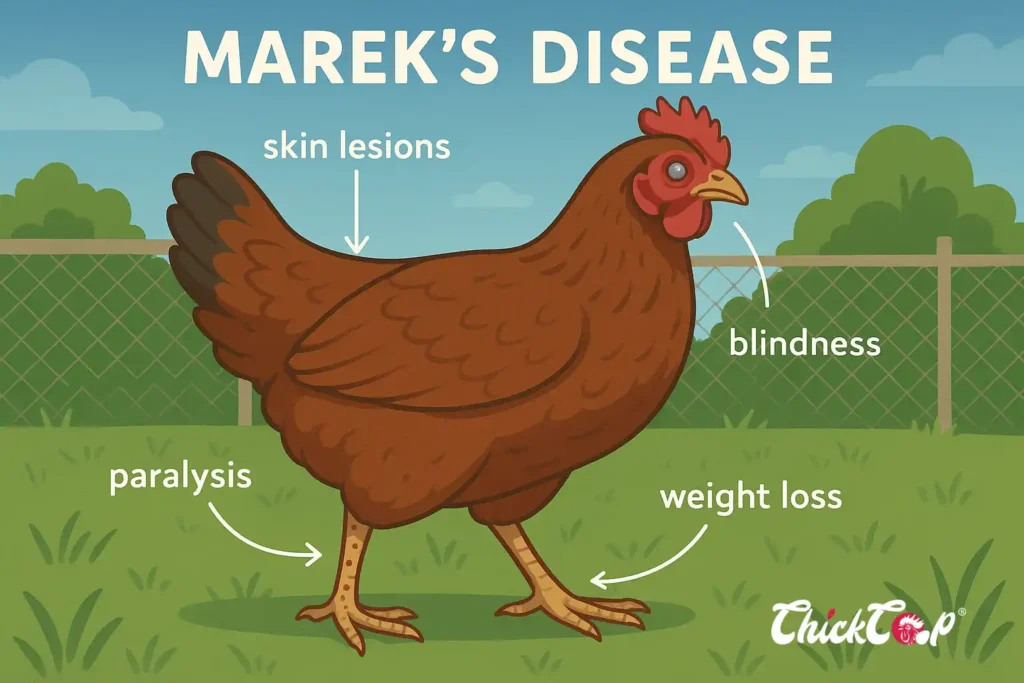
Targeting young birds, this virus leads to paralysis, droopy wings, and sometimes death. Even vaccinated chickens can carry and shed the virus.
*Vaccinate chicks before exposure for best protection.*
Fowl Pox & Chicken Pox
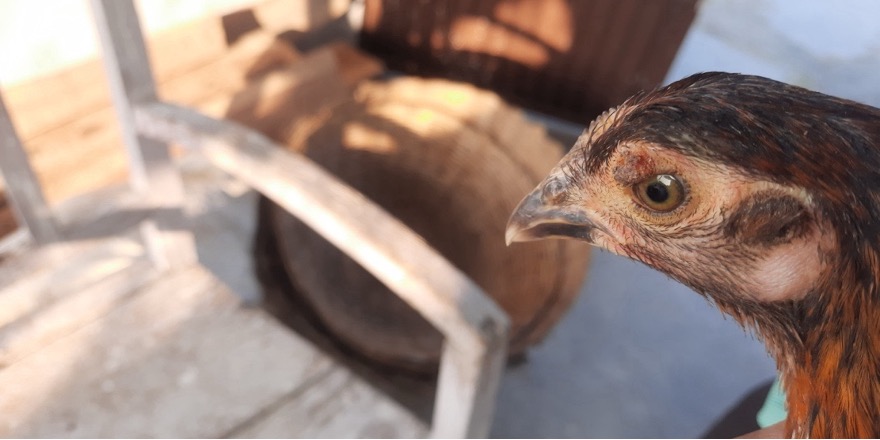
Despite the name, avian pox isn’t related to human chickenpox. It causes scabs and fever. Spread by mosquitoes and pecking injuries, it can be controlled by vaccines during outbreaks.
2. Bacterial Diseases
Chronic Respiratory Disease (CRD)
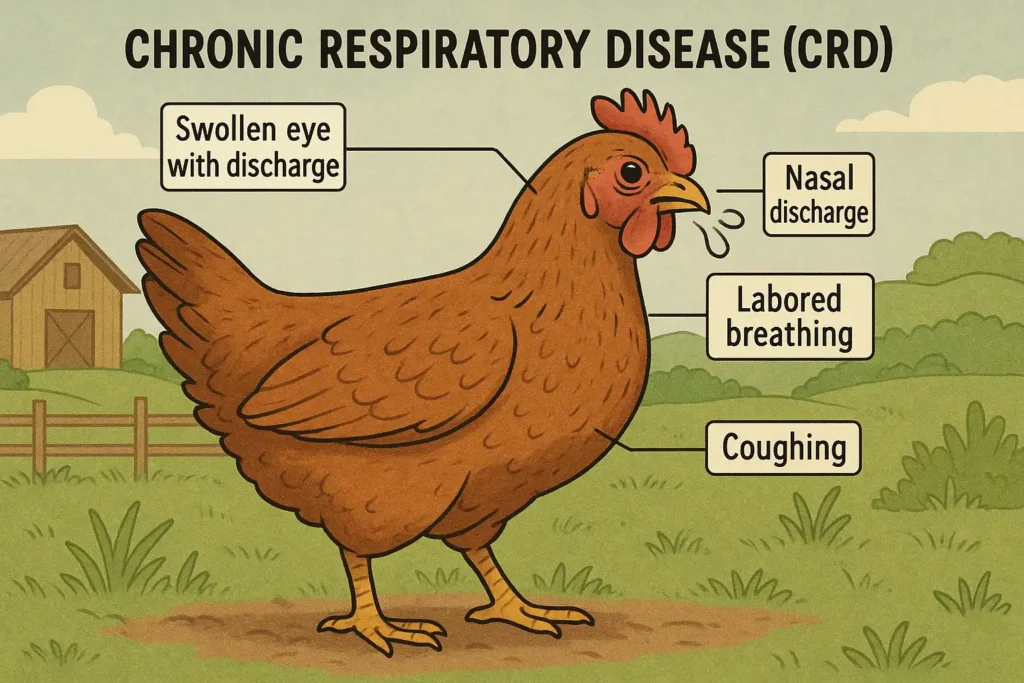
Often caused by Mycoplasma Gallisepticum (MG) and Mycoplasma Synoviae (MS). Symptoms include coughing, respiratory distress, and swollen joints. Though rarely fatal, birds remain lifelong carriers.
Colibacillosis (E. coli Infection)
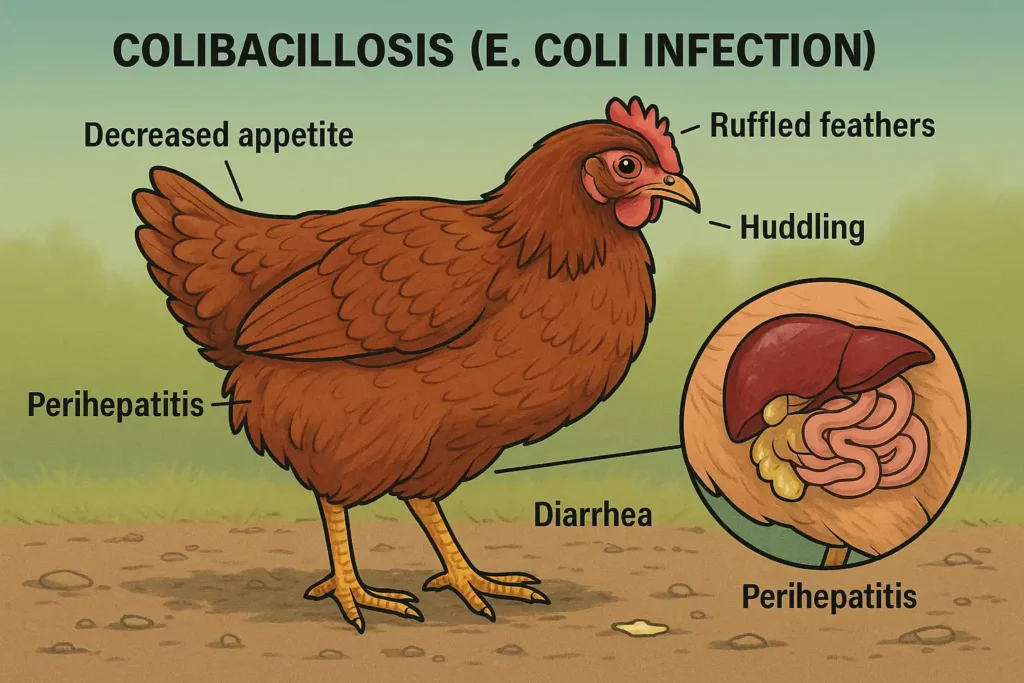
Triggered by stress and unsanitary conditions, this bacteria enters through the respiratory or digestive tract and affects organs like the liver and heart. Chicks are especially vulnerable.
Infectious Coryza
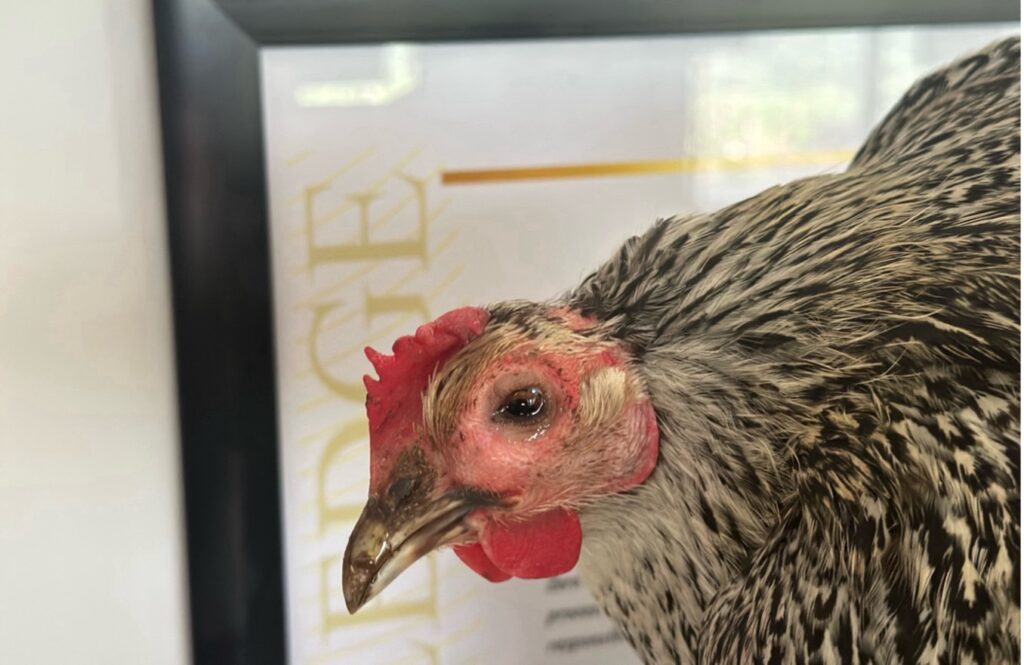
Often described as the “chicken cold,” Coryza causes sneezing, nasal discharge, and facial swelling. Prevention depends heavily on biosecurity and sourcing disease-free stock.
Foot Pad Dermatitis
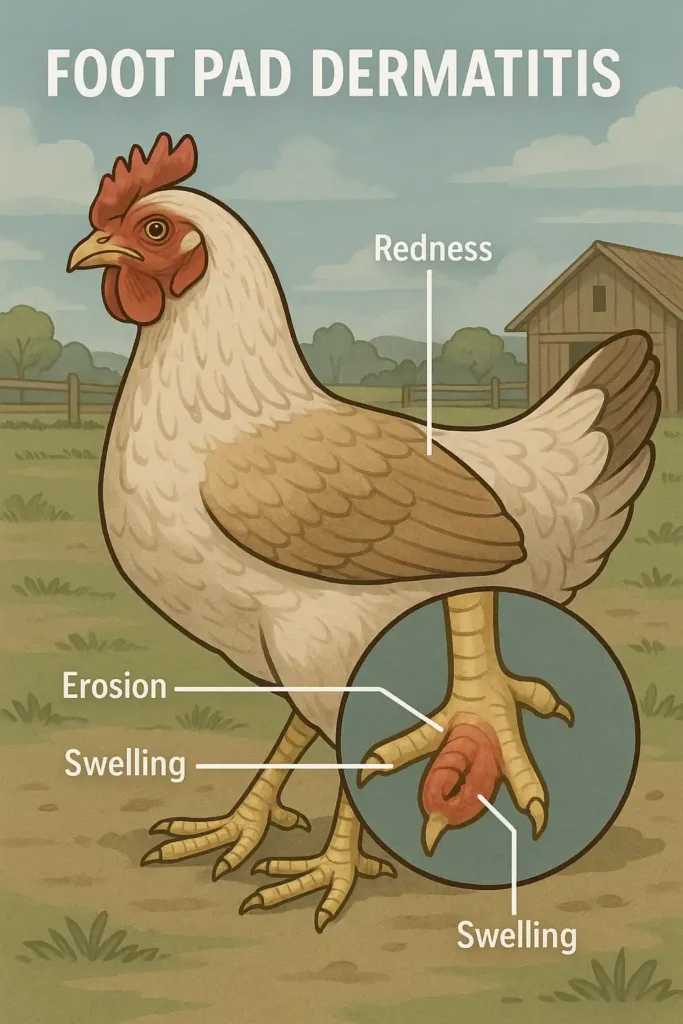
Common in older birds, this painful foot infection is caused by Staphylococcus aureus. It’s often due to poor flooring or hygiene.
3. Fungal & Mold Diseases
Brooder Pneumonia (Aspergillosis)
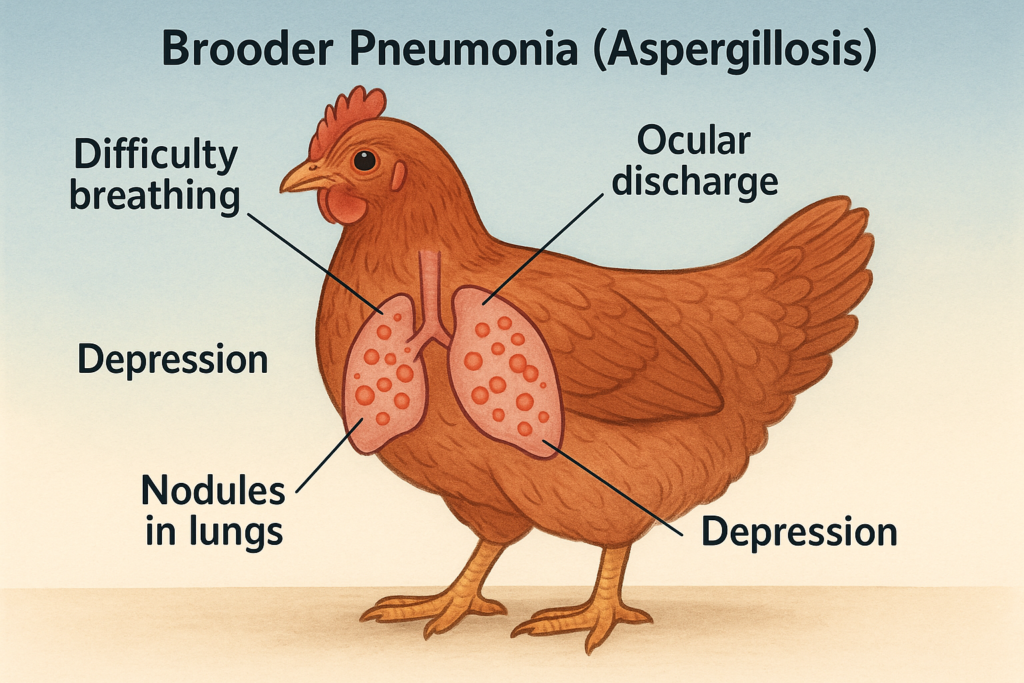
Caused by mold spores, this condition affects chicks kept in damp or poorly ventilated brooders.
4. Parasitic Diseases
Coccidiosis
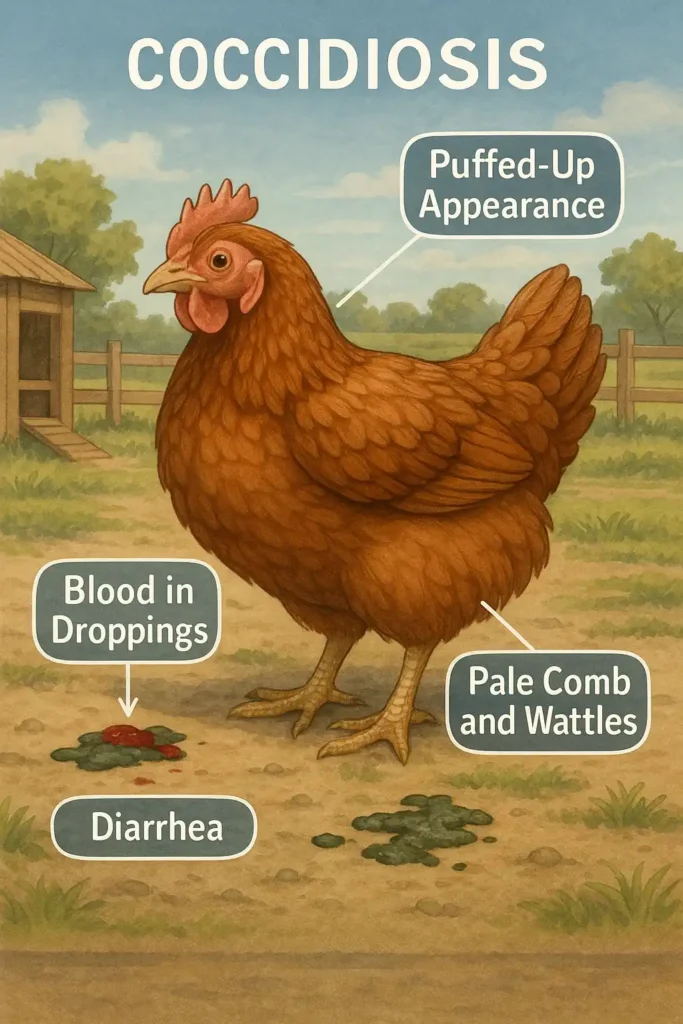
One of the most common protozoan infections, coccidiosis damages the intestinal lining and can cause bloody diarrhea, poor growth, and death, especially in chicks aged 3–6 weeks.
Prevent with clean housing and gradual exposure to build immunity.
Ascaridiasis
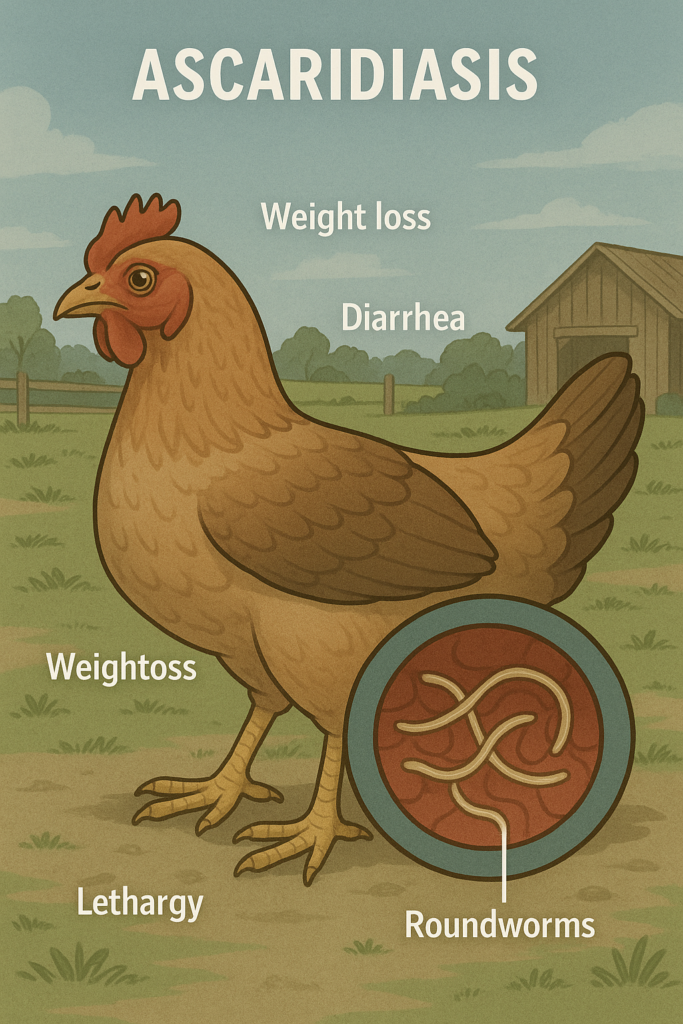
Caused by large roundworms, it leads to diarrhea, weight loss, and death if untreated. Most birds develop resistance by 3 months of age.
Capillary Worms & Cecal Worms
Thin worms infecting the crop and intestines. Birds may show lethargy and diarrhea, although cecal worms rarely cause serious harm.
Gapeworm
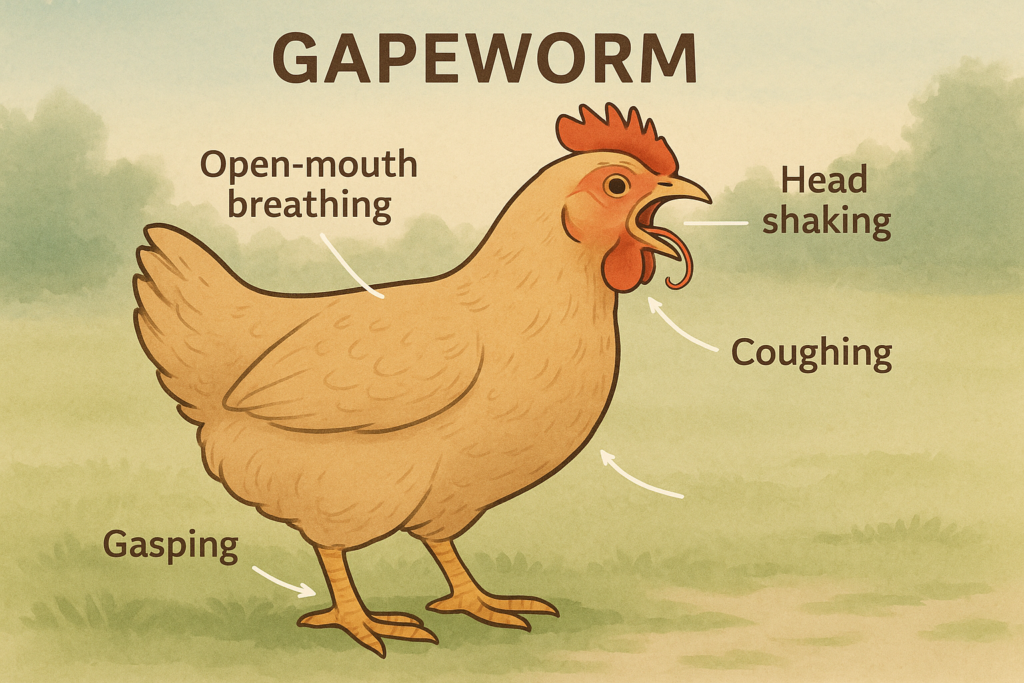
A red, Y-shaped worm that blocks the windpipe, causing gasping and coughing. Dangerous for young birds due to risk of suffocation.
5. Non-Infectious Conditions
Dehydration
Chickens are over 50% water. Inadequate hydration—especially during heatwaves or freezing conditions—can lead to death.
Diarrhea
Not a disease but a symptom. It can signal anything from worms and coccidiosis to stress or poor feed quality.
Ascites (Water Belly)
Fluid accumulation in the abdomen due to heart or liver issues. Often seen in fast-growing broilers. Prevention includes better ventilation and dietary management.
Sudden Death Syndrome
Seen in broilers, this condition causes birds to die suddenly, often flipping onto their backs. Likely linked to rapid growth and metabolic stress.
Hardware Disease
Though rare, chickens can ingest sharp objects that puncture their gizzard, leading to infection and death.
6. Understanding Causes of Disease
| Infectious (Biological) | Non-Infectious (Environmental) |
| Virus | Chemical Poisoning |
| Bacteria | Hereditary Defects |
| Fungi & Mold | Nutritional Deficiency |
| Parasites | Unknown Causes |
7. Disease Management & Prevention Tips
- Biosecurity: Limit access to your flock and disinfect equipment regularly.
- Vaccination: Especially for diseases like Marek’s, Fowl Pox, and Avian Influenza.
- Clean Housing: Prevent mold, parasites, and bacterial growth.
- Balanced Nutrition: Nutritional deficiencies weaken immunity.
- Monitor New Birds: Isolate and observe before introducing them to the flock.
- Probiotics: Support gut health with apple cider vinegar and healthy feed.
In Conclusion – Brought to You by ChickCoop®
Every poultry keeper must recognize that prevention starts with awareness. From airborne viruses to intestinal parasites and stress-related disorders, your flock faces a wide array of health risks. But with the right knowledge, clean environments, proper nutrition, and vigilance, you can prevent most diseases or catch them early enough to act.
At ChickCoop®, we’re committed to helping poultry farmers thrive. Whether you’re a backyard hobbyist or managing a large-scale farm, we’re here to support you with healthy practices, proven solutions, and industry knowledge.
At ChickCoop®, we’re more than just a Chicken Company, writing interesting blogs about them– we’re your trusted partner in building a modernized, sustainable and profitable farm. From breed selection to buy-back support, feed guidance, and modern farm management tips, we ensure farmers like you achieve the best results and profits.
Call us today to discuss your farming needs
📧 Email us at: write@chickcoop.in
📞 Call us: +91-9939209699
Stay safe. Stay informed. Keep your flock strong. 🐓
